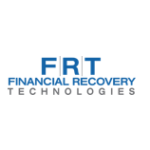FRT’s Fast Five: Week Ending October 16, 2020
Financial Recovery Technologies Fast Five provides you with the top news in shareholder class actions. Stay up-to-date on the latest developments in settled (U.S./Canada) claims filing opportunities, Antitrust settlements, Global Group Litigation matters and more. For more information, contact your Financial Recovery Technologies representative or email us.
1. Beyond Meat Wins Bid to Dismiss Shareholder Suit Over Stock Drop
A shareholder class action against Beyond Meat has been dismissed after the U.S. District Court for the Central District of California decided the plaintiffs failed to allege that the plant-based burger maker’s supposed omissions about the seriousness of a pending lawsuit were misleading under federal securities law. The plaintiffs failed to identify any omitted information in Beyond Meat’s contemporaneous possession that would have rendered its affirmative statements of opinion about the pending lawsuit false or misleading for purposes of the Securities Exchange Act, Judge Michael W. Fitzgerald said. Click here to read the full article (subscription may be needed).
2. Fight Brewing Over Class-Action Rules Exemption
Class-action lawyers are shaping up for a fight over the government’s new litigation funding rules, which could see class actions currently believed to be exempted covered by the scheme. Plaintiff law firms rushed to commence more than 20 class actions in the weeks leading up to the August 22 deadline, but now questions are being raised over when exactly the exemption is triggered. Treasurer Josh Frydenberg announced in May the government would require litigation funders to hold Australian Financial Services Licenses (AFSL) from August 22 and operate as Managed Investment Schemes (MIS). While the application of AFSLs to litigation funders was met with a lukewarm response from the sector, the requirement for funder-backed class actions to operate as MISs was met with hostility. Click here to read the full article (subscription may be needed).
Last week, a three-judge panel of the 9th U.S. Circuit Court of Appeals issued a significant decision (2020 WL 5951150) in a shareholder class action against BofI, a bank holding company. The appeals court, in an opinion by Judge Paul Watford, revived a class action alleging, among other things, that the bank’s share price plunged in response to disclosures in a whistleblower lawsuit. The 9th Circuit joined the 6th Circuit to conclude that a whistleblower complaint containing allegations from a corporate insider can serve as a “corrective disclosure” of the company’s misstatements. If the market perceives the whistleblower’s allegations to be true and reacts accordingly, the appeals court held, shareholders can base their loss causation arguments on the filing of the lawsuit. Click here to read the full article.
4. How Danske Is Cleaning Up After a €200B Money Laundering Scandal
At some point before the end of this year, Danske Bank is due to finish its own investigation into what went so badly wrong with the organization’s internal governance that it allowed more than €200 billion (U.S. $227 billion) of dirty money to flow through its Estonian subsidiary undetected. The report, which will focus on the “non-resident” accounts in Estonia through which the money was laundered, will not be made public until regulators and investigators in Denmark (and perhaps elsewhere—Danske is not saying) have looked through the findings as part of their own investigations. Click here to read the full article.
5. German Prosecutors Drop Money Laundering Probe Into Deutsche Bank
German prosecutors discontinued a money laundering investigation against managers at Deutsche Bank in relation with Estonian subsidiary of Danske Bank due to lack of evidence, the Frankfurt-based German multinational investment bank said Tuesday in a statement. “This step means that the allegations of aiding and abetting money laundering that were made against the bank have been dropped,” read the statement. Despite closing the case, the Frankfurt Public Prosecutor’s Office fined the bank €13.5 million (US$15.9 million) for its slow reporting of suspected instances of money laundering. Click here to read the full article.
Subscribe to FRT’s Monthly Newsletter
Financial Recovery Technologies’ Shareholder Litigation Fast Five provides you with the top news in shareholder class actions. This is your exclusive summary of the latest industry developments related to settled, group and antitrust actions and recovery opportunities. Click here to subscribe.
Learn More
To learn more about how FRT can help your firm maximize recoveries in shareholder class action settlements, contact us at learnmore@frtservices.com.
About FRT
SETTLED CLAIMS I PASSIVE GROUP I ANTITRUST I FUTURE CLAIMS I OPT-IN MONITORING I OPT-OUT MONITORING
Founded in 2008, Financial Recovery Technologies (FRT) is the leading technology-based services firm that helps the investment community identify eligibility, file claims and collect funds made available in securities and other class action settlements. Offering the most comprehensive range of claim filing and monitoring services available, we provide best-in-class eligibility analysis, disbursement auditing and client reporting, and deliver the highest level of accuracy, accountability, and transparency available. For more information, go to www.frtservices.com.
- Follow us on Twitter: @FRTServices
- Follow us on LinkedIn Financial Recovery Technologies
- Email us: learnmore@frtservices.com
This communication and the content found by following any link herein are being provided to you by Financial Recovery Technologies (FRT) for informational purposes only and do not constitute advice. All material presented herein is believed to be reliable but FRT makes no representation or warranty with respect to this communication or such content and expressly disclaims any implied warranty under law. Opinions expressed in this communication may change without prior notice. Firms should always seek legal and financial advice specific to their unique situation and objectives.





